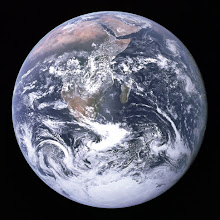Anderson's discussion with Fouad Ajami and James Woolsey

Source: www.allthingsandersoncooper.com/2011/02/unrest-continues.html
To the students in my class at the University of Redlands (SOAN 265-01, "The Political-Economy of Energy Resources--Oil in the Global Economy"): Please view the above 10 min video from the 17-Feb-11 CNN program "AC360." Scroll about half-way down the page. Take special note of what former CIA director James Woolsey had to say about political turmoil in the Middle East, and its potential impact on petroleum markets. The next segment of reading for our course will focus on international security issues, as they relate to global energy markets in general, and petroleum in particular. Please recall the "Oil Shockwave" simulation exercise we did a few weeks ago. We are now seeing some of those issues actually come to light. So, congratulations everyone! You are now light-years ahead of the general American public (and most of your fellow university students) on these issues. In the weeks ahead, we will continue to track global events like these, in real time, relating them to your coursework, along the way.
To general readers of this blog: We are here dealing with overlapping factors of international security policy, world energy markets, petroleum pricing, medium- to long-term international political-economic development issues, and how each of these then feed-back to issues of international security. Increased levels of political insecurity can disrupt markets--especially oil markets. Once that happens, and if the insecurity is sustained for a protracted period, we may begin to see increased prices at the gas pump. Of course, students in my class now know that there is more to it than that, as virtually everything we consume today is touched by petroleum, or crude oil, in some way.
For those who don't know much about these issues but wish to know more, I would suggest starting with Blood and Oil, by Dr. Michael Klare (either the book or the DVD).
Blaine D. Pope








No comments:
Post a Comment